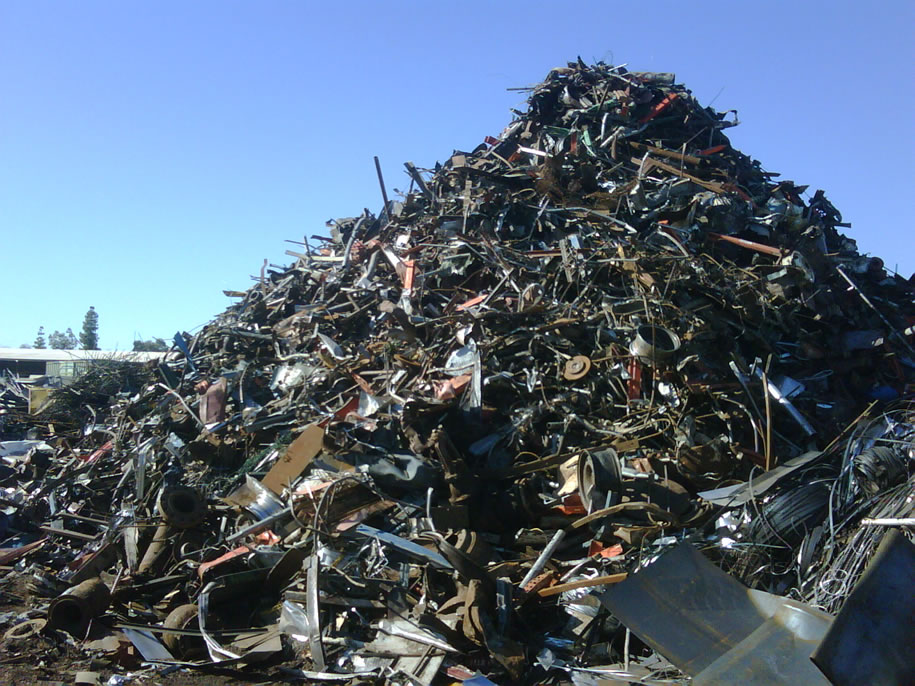For dumpster, container, and large loads please call
For dumpster, container, and large loads please call

M&M Recycling sees something valuable where many people see clutter. A box of old tools, a pile of worn-out wires, or a stack of bent fixtures usually get pushed aside. When you look closer, you see real material with cash value and a solid place in the wider cycle of production. The simple act of sorting extra metal can clear space, put money in your pocket, and cut down on the strain that heavy industry puts on the natural world. Keep reading to see how scrap metal recycling works and why it makes sense for the long haul.
Metal doesn't wear out the way many materials do. Steel, copper, brass, and aluminum can go through the recycling process again and again without losing their core structure. This level of durability gives them reliable cash value. A scrap metal buyer looks at your load with market prices in mind. The details change thanks to fluctuations in the market, but these metals consistently hold real value, and the rewards add up faster than most people expect. Copper works as a prime example. It moves through homes, businesses, and construction sites in wires, pipes, and small parts. Even short lengths create a small stack that can turn into quick cash when taken to a scrap yard. Steel shows up everywhere and remains one of the most recycled materials on the planet. Aluminum stays in circulation in cans, frames, and fixtures. The wide range of metals in daily life makes this a steady source of income for anyone willing to gather and sort. The value of recycled metal reaches past the price per pound. It reduces demand for new mining activity. Mining draws down land, fuel, and water. Recycling bypasses those steps and sends ready-to-use material back into the industrial pipeline. You get paid for your load, and you support a cycle that uses fewer resources.
Old metal tends to pile up. Garages, barns, workshops, and storage areas fill with forgotten pieces that take up space. When these items sit long enough, they become clutter that creates frustration, but removing them brings back order. Taking the next step with scrap metal recycling gives the cleanup a purpose. Scrap metal doesn't belong in landfills. It takes decades to break down, and some pieces never degrade at all. Tossed metal also crowds out space for other household waste. Heavy items put real strain on landfill equipment and add problems to the sorting process. The better move is to send scrap to a facility that melts the material down, processes it, and gives it another life in new goods. This cleaner method keeps soil healthier, keeps waterways cleaner, and lowers the carbon load. Each pound of recycled metal reduces pressure on mines, transport fleets, and processing plants. Every pound of recycled metal cuts down on the need for mines, transport fleets, and processing plants. Those savings reach far into the supply chain. They create fewer emissions and use far less energy. Your old parts, wires, and fixtures become raw material that feeds back into new projects. It feels good to clear out a space and know the material ends up in useful hands.
People like to talk about long-term sustainability, but the real impact starts at home. You can turn a normal cleaning day into a worthwhile return by gathering materials and dropping them at a local scrap yard. The cycle offers reliable income for homeowners, contractors, landlords, and small businesses. A scrap metal buyer in Smyrna, GA can help you understand the rates for every metal you bring in. Clean material pays the best, so set steel apart from copper and brass when you're able to. Cut away plastic, rubber, and extra insulation to raise your payout. People who take the time to sort see bigger returns. Local action plays a real part in the recycling chain. The metal that moves through your community supports jobs and keeps useful material in circulation. Every load helps keep useful resources in play and reduces the strain on storage and disposal sites.
Setting aside a bin or corner for scrap metal makes things easy. When an appliance breaks, set the metal parts aside. When you finish a project, place the extra fittings or wires in the bin. When the pile reaches a workable amount, take it in for recycling. The habit works for single households, and it works for busy shops that handle large volumes of material. Contractors use this habit to recover value from job sites. Plumbers and electricians deal with copper and brass every day. Builders encounter steel, aluminum, and mixed metals. These materials move fast through a job, and setting up a clear system helps track them. People who do this will normally see consistent returns that support their bottom line. Households see similar benefits. A broken chair frame, old lawn tools, or a bundle of wires that collected in a drawer all go in the same spot. You clear out clutter and cash it out when you're ready. Scrap metal recycling works great for people who want cleaner spaces, higher returns, and a lighter impact on the environment.
Recycling scrap metal turns cleanups, repairs, and project work into real cash. It protects land and water. It puts less pressure on mines and heavy industry and helps communities recover resources that would sit unused. A local scrap yard makes everything easy. M&M Recycling offers fair prices and quality services, so bring your scrap in today and see the difference for yourself.